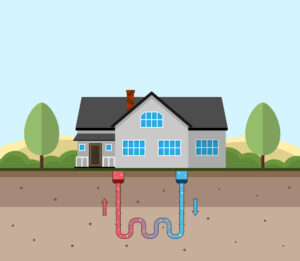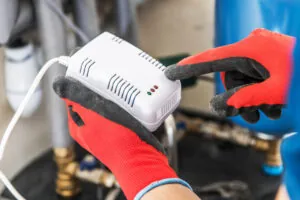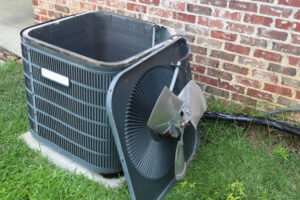The Advantages & Disadvantages of Geothermal Energy Systems
Geothermal energy was once a rarity, but it’s growing in popularity today as more homeowners look for less traditional ways to heat and cool their homes for less. If you’re interested in trading in your furnace and air conditioner for a geothermal heat pump, you’re going to need to know which geothermal installers near you are happy to undertake the work. Geothermal systems have the capability to both heat or cool your home depending on the time of year. But before you make the shift, it’s important to consider the advantages and disadvantages of this eco-friendly HVAC system.
Advantages of Geothermal Heat Pumps
- Highly efficient heating and cooling: Because geothermal energy is all about moving heat rather than creating it, the equipment can operate at 300% to 500% efficiency. This means that for every unit of electricity a geothermal heat pump consumes, it moves three to five units of heat. At this rate, you can expect to save 30% to 60% on heating costs and 25% to 50% on cooling costs compared to today’s most efficient furnaces and air conditioners.
- Low environmental impact: Geothermal energy is considered the greenest power source available today. It is virtually emission-free and, unlike oil and gas furnaces, requires no combustion. Geothermal heat pumps still need electricity to operate, so pairing the equipment with solar panels is a great way to lower the environmental impact even more.
- Renewable heating and cooling: Fossil fuel supplies are rapidly running out, but geothermal energy is different. All it does is extract heat from the Earth, where the temperature remains much more consistent than the air in all seasons. As long as the earth exists, geothermal energy production will be possible.
- Not weather dependent: Solar and wind power are considered renewable energy sources because they will never run out, but short-term electricity shortages can occur when the sun sets and the wind stops blowing. However, the Earth is ever-present, and so is the energy it produces.
- Excellent reliability and low maintenance requirements: Geothermal heat pumps have few moving parts compared to other HVAC equipment. This reduces the chance of breakdowns and decreases maintenance costs.
- Flexible applications: Geothermal energy is appropriate for the smallest house and the largest commercial building. All you need is to have the equipment sized accurately to meet your needs.
- Quiet operation: The largest components of a geothermal heat pump are installed underground. Without the noisy fan and compressor that air conditioners and air-source heat pumps require, you get to enjoy nearly silent operation.
Schedule Your Service Today!
Disadvantages of Geothermal Systems
- Higher upfront cost than other HVAC systems: The installation cost for a geothermal heat pump is a setback for some. However, with amazingly efficient performance, the investment can pay for itself in just five to 10 years.
- Most suitable for new home builds: While it’s possible to install a geothermal heat pump in an existing home, retrofitting requires large-scale excavation. Installing the system during new home construction is much more feasible.
- Damage to underground components may require costly repairs: In rare instances, tree roots, shifting soil, and even rodents can damage the underground loops of a geothermal system. If this happens, repairing the equipment could be a major setback.
- Fewer installers are knowledgeable about geothermal energy: You might have to hunt around to find an HVAC company that is well-versed in geothermal energy. Fortunately, National Heating & Air Conditioning is a geothermal expert. We are your premier source for all your geothermal heating and cooling needs in the Cincinnati area.
Call National Heating & Air Conditioning at (513) 621-4620 for geothermal HVAC service in Cincinnati! Are you interested in installing a geothermal system in your Cincinnati-area home? Contact us now!
Request Service
Fill out our contact form, and one of our team members will reach out to you shortly!
Request Service






